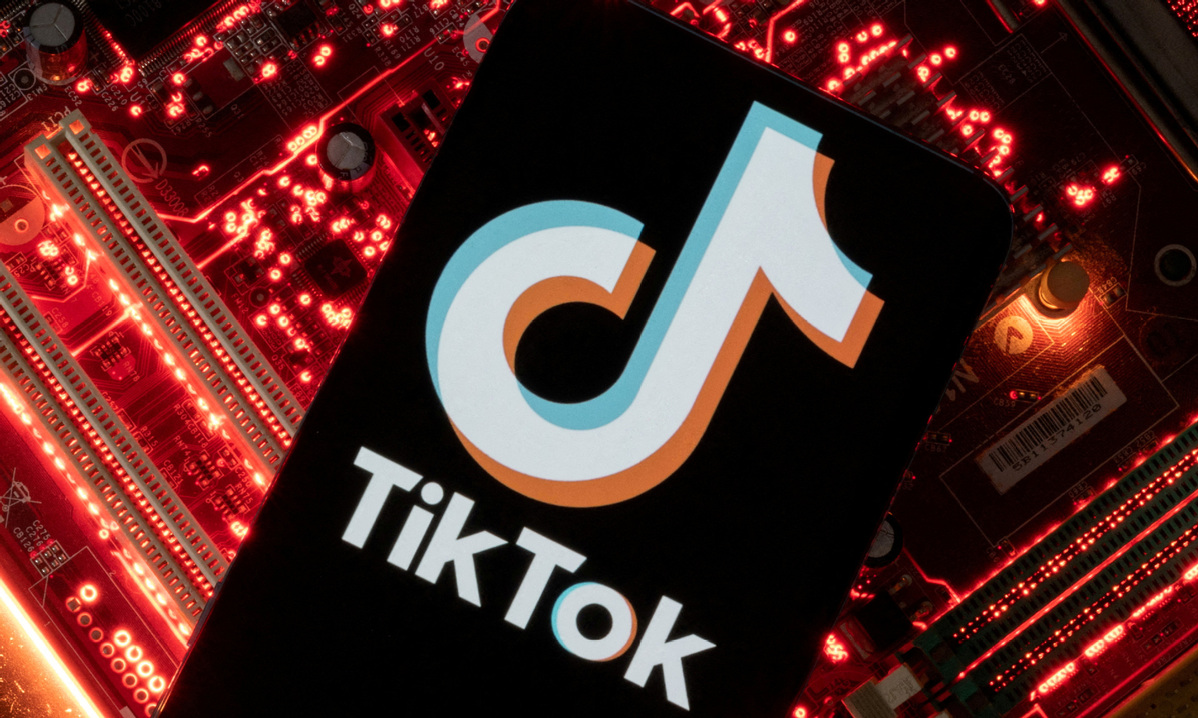AI-generated songs sound bad note for pop industry
By Barry He | China Daily Global | Updated: 2023-06-30 09:41

Music streaming service Deezer has announced it will be targeting and removing so-called deepfake music on its platform.
Created by artificial intelligence, these songs mimic the styles and voices of famous musicians to create realistic songs that can sound indistinguishable from genuine releases. The problematic technology is producing smash hits popular with Gen Z, whose taste for the trend remains unhampered by a lack of authenticity. The discussion on how best to control the threat is underway, but a blanket ban on the technology is seen by some as an affront to musical creativity itself.
Producers such as Ghostwriter became infamous back in April for releasing AI-generated songs on TikTok, which featured Canadian singer Drake's voice in brand new releases. These spread like wildfire over the social media platform, garnering tens of millions of views, and helped establish the popularity of this new type of content.
Now streaming platforms are clamping down. It can take a professional musician years of work and creativity to produce an album, but nowadays just a click of an app could spell trouble for the music industry, on a scale not seen since the emergence of online illegal piracy in the early 2000s.
Deezer says it is developing AI-detecting tools that can pick up synthetic versions of established voices for artists. Users will then be informed about what is genuine and what is not, similar to how social media platforms use independent fact verification to combat fake news.
Songs that vary in tempo or are distorted suspiciously will be flagged on such systems, however, a nuance must be allowed to avoid unfair targeting of legitimate remixes or remastered versions of songs. AI-assisted music that has been granted consent during the production process may also be subject to an altered remuneration initiative.
The music industry is keen to approach this challenge carefully. Many major players recognize that the technology could provide huge benefits for production and creativity. If a proper system is set up to facilitate and regulate the AI music revolution, nasty surprises can be avoided further down the line.
Harvey Mason Jr, CEO of the prestigious Grammys music awards ceremony, said he expects AI-assisted music to be nominated in the immediate future, and that the technology could greatly increase the speed at which experimental ideas can be cycled through in the creative process.
Acceptance, however, is on the condition that only songs where a human creator was in control of arrangement may be considered for an award. AI voice clones will be disallowed, even if consent is given to use likeness. A song written by AI may be eligible if it is performed by a human singer. These stipulations are important to confirm in advance of the incoming AI production wave, as lessons are being quickly learned in other creative fields.
The winner of the 2023 Sony World Photography Award was later revealed to have been an AI concoction, with a photographer stating that he submitted the image to highlight the institution's lack of preparedness for new innovation.
As with music and all other creative fields, an integral part of the value of art stems from a celebration of human achievement, imagination and skill. The music industry would do well to ensure that AI can be regulated to the point where it can assist this process instead of fully replacing it, and without being caught off guard.
























